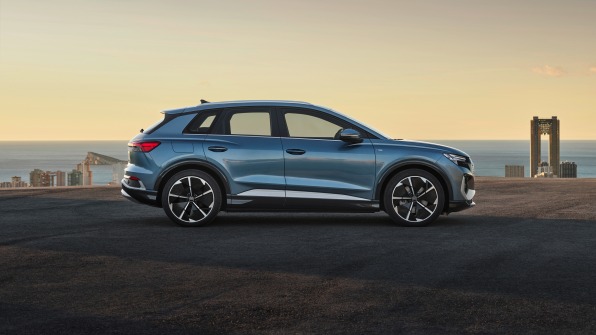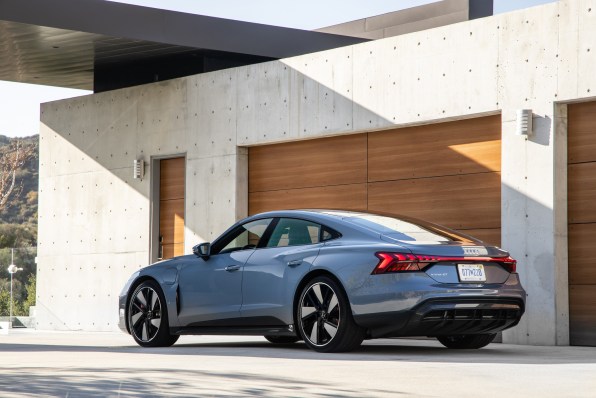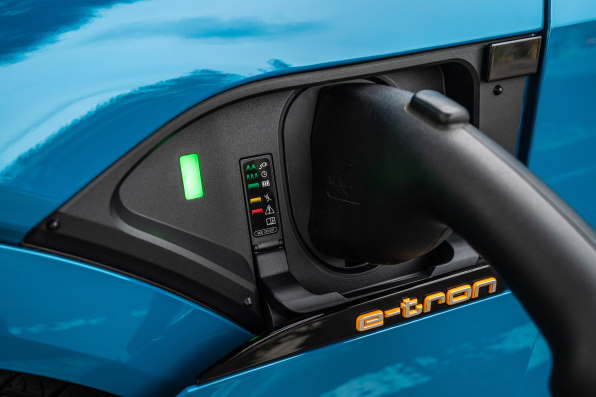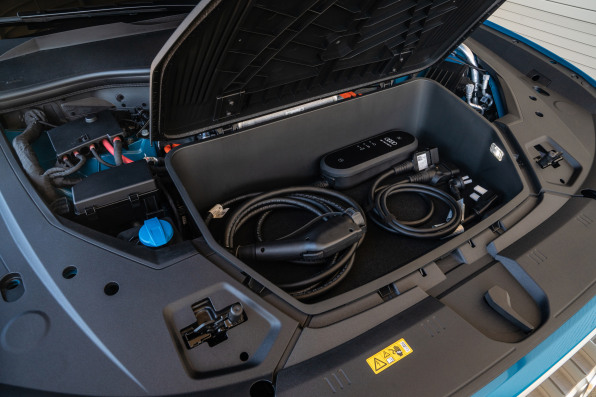- | 9:15 am
Why this climate scientist now works for a car company
Spencer Reeder knew that car companies like Audi would have to fundamentally change, pivoting from a long history of making internal combustion engines.

Early in his career as a climate scientist, Spencer Reeder traveled to Antarctica to study the impacts of climate change firsthand. He later worked on climate policy for the state of Washington, served as a lead author on the U.S. National Climate Assessment, and worked for Microsoft cofounder Paul Allen helping fund more climate research. Today, he works for a car company.

Spencer Reeder [Photo: Audi]
“I was feeling, increasingly, this imperative to get involved in the emissions reduction side,” says Reeder, who now serves as the director of both sustainability and government affairs for Audi of America. He had worked to try to pass a cap-and-trade law in the state of Washington, but the bill failed, leading him to feel frustrated with the political process—and to think more about the potential of working in industry. By 2016, as transportation surpassed electricity as the biggest source of emissions in the U.S., “transportation was sort of in the crosshairs for everybody in the climate community,” he says.Part of making transportation more climate-friendly will come from walkable neighborhoods and better public transit. But Reeder knew that car companies like Audi would also have to fundamentally change, pivoting from a long history of making internal combustion engines, or ICEs. (Audi is among the oldest automakers, having spun out of a company first founded in 1899.) In 2018, he sat down with the president of Audi of America at the time, Scott Keogh, to interview for the company’s sustainability director job.
“I looked him in the eye and we interviewed each other, essentially,” he says. “I just said, how serious are you about making this pivot to electric vehicles? And how serious are you about the underlying context that this is a climate imperative—like, you’re not just doing this because Tesla’s your competitor, and this is sort of a cool business opportunity. . . . Is there a systemic commitment to addressing climate change?”

[Photo: Audi]
Reeder says he was convinced that the company was serious about changing, and he ended up taking the job. Three years later, in 2021, Audi announced that every new model after 2025 would be fully electric. The company will phase out older ICE models by 2033. Some other major car companies, including Ford and General Motors, are moving a little more slowly, saying that they will try to phase out global sales of gas and diesel vehicles by 2040, or 2035 in major markets.“We’ve essentially bet the future of the company on [electric] technology, and it’s the single most significant thing that we can and must do to address the climate crisis—transform our company into an electric vehicle company,” Reeder says. “It would be very difficult for the company if this doesn’t translate into the absolute dominant form of transportation.”
This year, after introducing the electric Q4 e-tron, Audi will have more fully electric EVs in the market in the U.S. than any other automaker, and Reeder calls the company “far more aggressive” than competitors in the industry.
Reeder also helped introduce new policies like an internal price on carbon, modeled after a similar program at Microsoft. Because Audi of America doesn’t manufacture cars itself, some of the division’s biggest internal climate impacts come from things like employee flights. The company tacks on a fee for flights at $200 per ton of carbon emitted per trip. Reeder was convinced that the fee needed to be high.
“If someone had to pay an extra $20 or $30, is that really gonna affect their decision-making? Probably not. We want the signal to be big enough,” he says. The money goes into an internal sustainability fund to pay for more company projects.

[Photo: Audi]
In his dual role as the director of sustainability and of government affairs, he’s able to ensure that the company’s sustainability goals translate to its outward-facing lobbying efforts.
“You may have a group of sustainability advocates within a company, and then you’ve got the government affairs team running off advocating for something that’s just purely in the business interest, and maybe compromises the otherwise good positions on climate or sustainability that a company may have,” Reeder says. “And I think that’s not an uncommon problem in industry. And we have the benefit that I’m the same person.”

[Photo: Audi]
Company leaders recognized the case for ambitious action, Reeder says, though others took more convincing.“There was some skepticism within some of the midlevel people,” he says. “We’ve got this great history of rally car racing and all these great internal combustion engines we make, and people love us for that—why would we walk away from that? There was some inertia to overcome there.”
To help make the case for ambitious climate action, Reeder has worked to build awareness internally about what climate change means personally for company employees and their communities. And because the directive for climate action was coming from the top, he says, it has moved forward quickly.

[Photo: Audi]
When the Trump administration said that it planned to take away California’s ability to set stricter emissions standards for cars, Audi’s parent, Volkswagen Group, was one of a handful of car companies to say that it would voluntarily meet California’s standard. (The Biden administration has since reinstated California’s emissions waiver.) Reeder also spends time advocating for more government investment in electric charging infrastructure, a critical part of speeding up consumer adoption of EVs.In Europe, Audi is working to reduce its emissions from manufacturing through projects like a pilot with Alcoa to use low-carbon aluminum that emits oxygen instead of carbon dioxide when it’s smelted. Its factory in Belgium is plastered with nearly a million square feet of solar panels. Still, the main change that matters is the shift to EVs.
“We really are doing a lot of hard work to make direct emission reductions, which is really important, but at the end of the day, it’s about electric vehicles,” Reeder says. “We could do all that other stuff super well. But until we really get the majority of our portfolio to electric vehicles, and that’s what we sell principally, we still have work to do. That’s our core responsibility.”

































